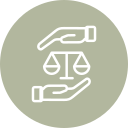
About us
Your content goes here. Edit or remove this text inline or in the module Content settings. You can also style every aspect of this content in the module Design settings and even apply custom CSS to this text in the module Advanced settings.
Frequently Asked Questions
What is a trademark?
How is a trademark different from a copyright?
Copyright registrations are handled by the US Copyright Office, you can learn more about copyright registration here.
Do I need to file a registration with the USPTO to have trademark rights?
How long does it take to register a trademark?
What’s the difference between “use” and “intent to use” trademark filings?
Frequently Asked Questions
Our Trademark Services

Selection
Selecting a strong trademark is the corner stone of building a valuable brand. Strong trademarks forge a connection between the company and consumers and

Search and Clearance
Once a trademark is selected, conducting due diligence is essential to identify potential risks to trademark use. To mitigate these risks, we conduct availability searches using

Filing
Before filing a trademark application with the U.S. Patent and Trademark Office (PTO), we work closely with the mark owner to develop a strategy regarding the form of the mark

Office Action Response
Office Actions are initial administrative refusals by the U.S. Patent and Trademark Office (PTO). We counsel clients who have received Office Actions after filing applications on their own,

Renewals & Registration Maintenance
After a mark is registered, we continue to closely monitor all additional renewal and maintenance deadlines to ensure that trademark rights are

Enforcement & Monitoring
Enforcement and monitoring efforts are critical brand-protection steps after a mark is registered. While they do necessarily involve time and effort, they are part of the cost of

TTAB Proceedings
Trademark Trial and Appeal Board (TTAB) proceedings are similar to civil litigation proceedings, and include discovery, expert testimony, and pretrial disclosures.
